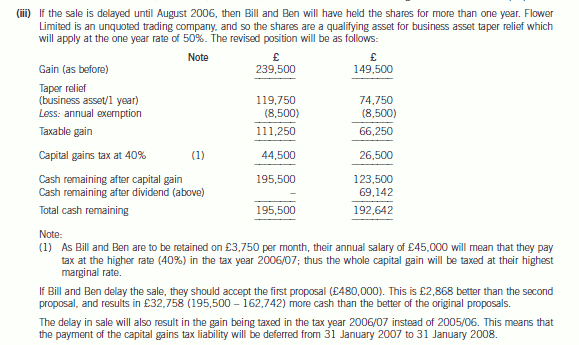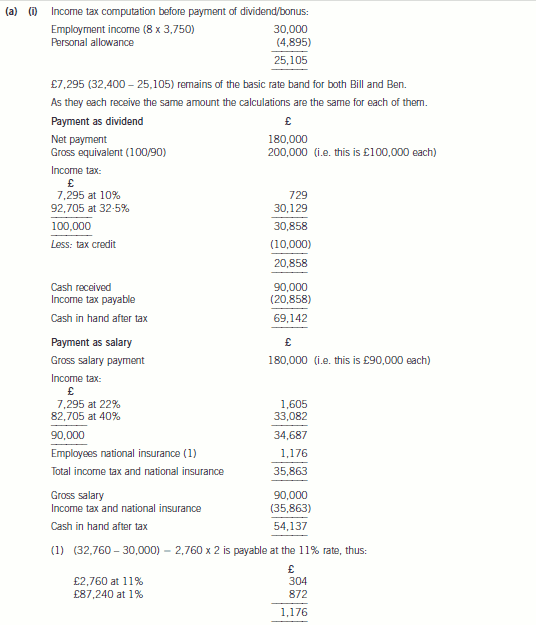2020年云南省ACCA报名条件和考试科目是什么?
发布时间:2020-01-03

ACCA是来自英国的一个注册会计师资格,因为广泛地被全球范围内的各地区和雇主认可而备受关注。与国内的各大财会证书相比,ACCA有着极其独特之处,例如它的报名条件、考试科目等内容。
2020年ACCA考试报名条件:
- 1、教育部认可的高等院校在校生(本科在校),顺利完成大一的课程考试,即可报名成为ACCA的正式学员;
- 2、凡具有教育部承认的大专以上学历,即可报名成为ACCA的正式学员;
- 3、年满16周岁,可先注册成为FLQ学员,在获得商业会计证书后转为ACCA学员,并可豁免AB、MA、FA三门课程。
ACCA官方政策指出,要具备以下条件之一者,均可报名参加ACCA考试。那么,ACCA考试共有哪些科目呢?
|
课程类别 |
课程序号 |
课程名称(中) |
课程名称(英) |
|
知识课程 |
AB |
会计师与企业 |
Accountant in Business |
|
MA |
管理会计 |
Management Accounting |
|
|
FA |
财务会计 |
Financial Accounting |
|
|
技能课程 |
LW |
公司法与商法 |
Corporate and Business Law |
|
PM |
业绩管理 |
Performance Management |
|
|
TX |
税务 |
Taxation |
|
|
FR |
财务报告 |
Financial Reporting |
|
|
AA |
审计与认证业务 |
Audit and Assurance |
|
|
FM |
财务管理 |
Financial Management |
|
课程类别 |
课程序号 |
课程名称(中) |
课程名称(英) |
|
核心课程 |
SBL |
战略商业领袖 |
Strategic Business Leader |
|
SBR |
战略商业报告 |
Strategic Business Report |
|
|
选修课程 |
AFM |
高级财务管理 |
Advanced Financial Management (AFM) |
|
APM |
高级业绩管理 |
AdvancedPerformance Management (APM) |
|
|
ATX |
高级税务 |
Advanced Taxation (ATX) |
|
|
AAA |
高级审计与认证业务 |
Advanced Audit and Assurance (AAA) |
如需了解或想更快报考ACCA, 请持续关注51题库考试学习网,51题库考试学习网将会不定时更新关于ACCA考试的相关资讯。
下面小编为大家准备了 ACCA考试 的相关考题,供大家学习参考。
(iii) State how your answer in (ii) would differ if the sale were to be delayed until August 2006. (3 marks)

(c) Assess Mr Hogg’s belief that employing child labour is ‘always ethically wrong’ from deontological and
teleological (consequentialist) ethical perspectives. (9 marks)
(c) Mr Hogg’s belief that employing child labour is ‘always ethically wrong’
Deontological perspective:
In the case scenario, Mr Hogg is demonstrating a deontological position on child labour by saying that it is ‘always’ wrong.
He is adopting an absolutist rather than a relativist or situational stance in arguing that there are no situations in which child
labour might be ethically acceptable. The deontological view is that an act is right or wrong in itself and does not depend
upon any other considerations (such as economic necessity or the extent of the child’s willingness to work). If child labour is
wrong in one situation, it follows that it is wrong in all situations because of the Kantian principle of generalisability (in the
categorical imperative). Because child labour is wrong and potentially exploitative in some situations, the deontological
position says that it must be assumed to be wrong in all situations. The fact that it may cause favourable outcomes in some
situations does not make it ethically right, because the deontological position is not situational and the quality of the outcome
is not taken into account.
Teleological perspective:
According to the teleological perspective, an act is right or wrong depending on the favourableness of the outcome. It is
sometimes called the consequentialist perspective because the consequences of the action are considered more important
than the act itself.
In the teleological perspective, ethics is situational and not absolute. Therefore child labour is morally justified if the outcome
is favourable. The economic support of a child’s family by provision of wages for family support might be considered to be a
favourable outcome that justifies child labour. There is an ethical trade-off between the importance of the family income from
child labour and the need to avoid exploitation and interfere with the child’s education. Education is clearly important but
family financial support might be a more favourable outcome, at least in the short term, and if so, this would justify the child
working rather than being in school. For HPC, child labour is likely to be cheaper than adult labour but will alienate European
buyers and be in breach of its code of ethics. Child labour may be ethically acceptable if the negative consequences can be
addressed and overcome.
[Tutorial note: other, equally relevant points made in evaluating Mr Hogg’s opinion will be valid. The texts discuss teleology
in terms of utilitarianism and egoism. Although this distinction is not relevant to the question, candidates should not be
penalised for introducing the distinction if the other points raised are relevant]
4 (a) For this part, assume today’s date is 1 March 2006.
Bill and Ben each own 50% of the ordinary share capital in Flower Limited, an unquoted UK trading company
that makes electronic toys. Flower Limited was incorporated on 1 August 2005 with 1,000 £1 ordinary shares,
and commenced trading on the same day. The business has been successful, and the company has accumulated
a large cash balance of £180,000, which is to be used to purchase a new factory. However, Bill and Ben have
received an offer from a rival company, which they are considering. The offer provides Bill and Ben with two
alternative methods of payment for the purchase of their shares:
(i) £480,000 for the company, inclusive of the £180,000 cash balance.
(ii) £300,000 for the company assuming the cash available for the factory purchase is extracted prior to sale.
Bill and Ben each currently receive a gross salary of £3,750 per month from Flower Limited. Part of the offer
terms is that Bill and Ben would be retained as employees of the company on the same salary.
Neither Bill nor Ben has used any of their capital gains tax annual exemption for the tax year 2005/06.
Required:
(i) Calculate which of the following means of extracting the £180,000 from Flower Limited on 31 March
2006 will result in the highest after tax cash amount for Bill and Ben:
(1) payment of a dividend, or
(2) payment of a salary bonus.
You are not required to consider the corporation tax (CT) implications for Flower Limited in your
answer. (5 marks)

As a result, Bill and Ben would each be better off by £15,005 (69,142 – 54,137). If the cash were extracted by way
of dividend.
Tutorial note: In this answer the employers’ national insurance liability on the salary has been ignored. Credit would be
given to a candidate who recognised this issue.
(c) For commercial reasons, Damian believes that it would be sensible to place a new holding company, Bold plc,
over the existing company, Linden Limited. Bold plc would also be unquoted and would acquire the existing
Linden Limited shares in exchange for the issue of its own shares.
If the new structure is implemented, Bold plc will provide management services to Linden Limited, but the
amount that will be charged for these services is yet to be determined.
Required:
(i) State the capital gains tax (CGT) issues that Damian should be aware of before disposing of his shares
in Linden Limited to Bold plc. Your answer should include details of any conditions that will need to be
satisfied if an immediate charge to tax is to be avoided. (4 marks)
(c) (i) The proposed transaction broadly falls under the ‘paper for paper’ rules. Where this is the case, chargeable gains do not
arise. Instead, the new holding stands in the shoes (and inherits the base cost) of the original holding.
The company issuing the new shares must:
(i) end up with more than 25% of the ordinary share capital or a majority of the voting power of the old company,
OR
(ii) make a general offer to shareholders in the old company with a condition which would give the acquiring company
control of the company if accepted.
The exchange must be for bona fide commercial reasons and not have as its main purpose (or one of its main purposes)
the avoidance of capital gains tax or corporation tax.
The issue of shares by Bold plc satisfies these conditions, thus Damian, as a shareholder of Linden Limited, will not be
taxed on the exchange of shares.
声明:本文内容由互联网用户自发贡献自行上传,本网站不拥有所有权,未作人工编辑处理,也不承担相关法律责任。如果您发现有涉嫌版权的内容,欢迎发送邮件至:contact@51tk.com 进行举报,并提供相关证据,工作人员会在5个工作日内联系你,一经查实,本站将立刻删除涉嫌侵权内容。
- 2019-01-17
- 2020-01-03
- 2020-01-10
- 2020-01-03
- 2020-01-09
- 2020-01-10
- 2020-02-28
- 2020-01-03
- 2019-01-06
- 2020-01-10
- 2020-01-09
- 2020-01-03
- 2020-02-23
- 2020-01-03
- 2020-02-26
- 2020-01-03
- 2020-01-09
- 2019-01-17
- 2020-02-13
- 2020-02-23
- 2020-02-22
- 2020-01-03
- 2020-02-22
- 2020-09-03
- 2020-01-03
- 2020-01-10
- 2020-01-10
- 2020-08-05
- 2020-01-02
- 2020-01-03